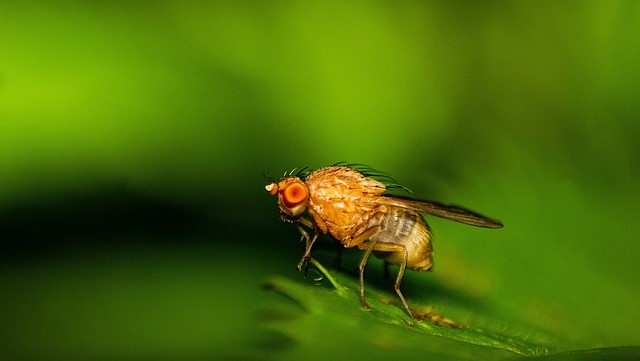Israeli scientists have found that even fruit flies can get sexually frustrated and this, in turn, makes it difficult for them to deal with stress. Researchers from Bar Ilan University determined that repeated failures to reproduce make fruit flies stressed and frustrated, which in turn makes them less resilient to other types of stress.
So, human beings actually have something in common with flies. How many people out there are stressed, or have difficulties dealing with difficulties in their day to day lives? And among these people, how many suffer from such problems due to issues they may have in the bedroom?
Will you offer us a hand? Every gift, regardless of size, fuels our future.
Your critical contribution enables us to maintain our independence from shareholders or wealthy owners, allowing us to keep up reporting without bias. It means we can continue to make Jewish Business News available to everyone.
You can support us for as little as $1 via PayPal at office@jewishbusinessnews.com.
Thank you.
Julia Ryvkin, from the Goodman Faculty of Life Sciences at Bar-Ilan University, and colleagues released their research in a report in a study just published in the journal PLOS Genetics.
Animals are motivated to take actions that improve their survival and reproduction through reward systems in the brain, but failure causes stress, explained the researchers. This sounds kind of like what happens with people.
The reward systems have been extensively studied, but less attention has been paid to how animals respond to failure. To investigate, researchers compared the behavior of male fruit flies (Drosophila melanogaster) that had experienced repeated sexual rejection, with males that had recently mated and naïve males that had been kept in isolation. They found that rejected males were more active, more aggressive, and less social towards other males — indicating a frustration-like state of stress. Rejected males were also less resilient to two other types of stress: starvation and exposure to a toxic herbicide that causes oxidative damage.
To understand how this stress response is controlled in the brain, the researchers manipulated the signaling system of neuropeptide F, which is involved in reward processing and aggression. Inhibiting neuropeptide F receptors made flies less resilient against starvation, mimicking the effects of repeated sexual rejection. Using a technique called optogenetics, which uses light to stimulate activity in specific cells, the team activated neuropeptide F receptor neurons and found that this also reduced the flies’ ability to withstand starvation.
“These results show for the first time that fruit flies experience social stress when their attempts to mate repeatedly fail,” says the study’s lead author Prof. Galit Shohat-Ophir, Vice Dean of Bar-Ilan University’s Goodman Faculty of Life Sciences. “The response is mediated by a brain signaling system involving neuropeptide F, which also plays a role in reward- and stress-responses in other organisms.” Shohat-Ophir says this offers an opportunity to further investigate social stress in a model organism with a simple nervous system, such as discovering the neuronal circuits that sense failure to mate, the molecular mechanisms that encode failures within NPF neurons and the downstream circuits.




